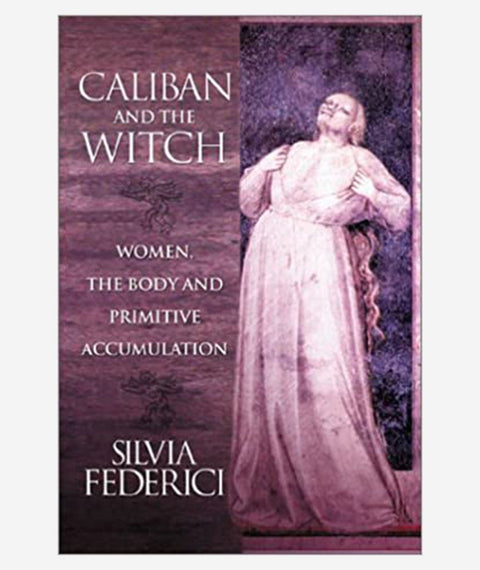

Though Marx was acutely aware of the murderous character of capitalist development – its history, he declared, “is written in the annals of humanity in characters of fire and blood” – there can be no doubt that he viewed it as a necessary step in the process of human liberation. My analysis also departs from Marx’s in its evaluation of the legacy and function of primitive accumulation. Most important, I have placed at the centre of my analysis of primitive accumulation the witch-hunts of the 16th and 17th centuries, arguing that the persecution of the witches, in Europe as in the New World, was as important as colonisation and the expropriation of the European peasantry from its land were for the development of capitalism. They include (i) the development of a new sexual division of labour subjugating women’s labour and women’s reproductive function to the reproduction of the workforce (ii) the construction of a new patriarchal order, based upon the exclusion of women from waged work and their subordination to men and (iii) the mechanisation of the proletarian body and its transformation, in the case of women, into a machine for the production of new workers. Thus, my description of primitive accumulation includes a set of historical phenomena that are absent in Marx, and yet have been extremely important for capitalist accumulation.

Whereas Marx examines primitive accumulation from the viewpoint of the waged male proletariat and the development of commodity production, I examine it from the viewpoint of the changes it introduced in the social position of women and the production of labour power. My analysis departs from Karl Marx’s in two ways. This is a lightly edited excerpt from Silvia Federici’s Caliban and the Witch: Women, the Body and Primitive Accumulation (2004, Autonomedia), republished with permission from the press. In this famous work, Silvia Federici gives a radical feminist reading to the 16th- and 17th century witch-hunts in Europe, arguing that capitalism began with systemic violence against women and colonised people, and that in order for capitalism to keep functioning, it needs an infusion of expropriated capital – and that women’s unpaid labour, including reproductive work in the home, is a critical part of this expropriation. Click to email this to a friend (Opens in new window).Click to share on WhatsApp (Opens in new window).Click to share on Facebook (Opens in new window).Click to share on Twitter (Opens in new window).


 0 kommentar(er)
0 kommentar(er)
